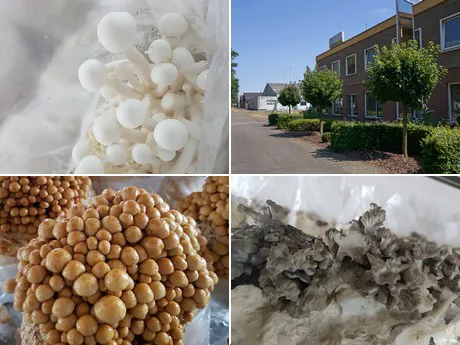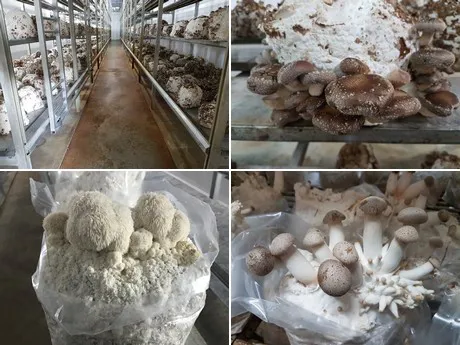Oakfield Champignons from Stramproy, the Netherlands, became Skal certified for the production of exotic mushrooms last week. “We already had the certificate for the trade in organic mushrooms,” says Diederick Knijnenburg. “We’re now also certified for the production, because on the one hand, we’ve seen demand for this increasing among our customers. On the other, we’ve noticed that sustainability and the environment are important themes, and we want to contribute to that.”

“From now on, we’ll grow six exotic mushroom varieties organically: shiitake, the white beech mushroom, nameko (Japanese clustered mushrooms), maitake (ram’s head), pompom blanc (lion’s mane mushroom) and eryngii (king trumpet mushroom). These varieties are grown on a wood substrate.” The company also grows conventional white and chestnut mushrooms and oyster mushrooms. “We currently don’t grow these varieties organically, because demand from our customers isn’t high enough. However, we can supply these via colleague growers we closely work with.”
To realise the production of organic exotics, the company set up an entire nursery, and they expanded their cold store with an additional cooling cell. “In the conventional mushroom production, we don’t use any pesticides. This was therefore not a major change for us. To produce all of these different varieties organically, we mostly had to invest in growing on organic substrate and setting up various production spaces, and we paid additional attention to hygiene and lowering disease pressure.”

“A major advantage of our company is that we have plenty of space at our own site to realise an expansion of our area, even for the organic production. Our vision is to grow only what has been sold. We focus on our permanent customers, who value quality, professionalism and buying directly from our production. It’s a good thing we managed to add organic to our portfolio.”
What about the future? “Our sales figures show that demand for both organic and exotic mushrooms is increasing. Because of the step we’ve just taken, we can combine these two. We now grow exotics on an area of 5,000 square metres, and we have 11,000 square metres for conventional. When there’s demand for certain varieties, we have the option and space to grow these, but we’d only do this if we had the demand. We don’t just start growing mushrooms to find out we can’t sell them. We produce only what our customers need.”
For more information:
Diederick Knijnenburg
Oakfield Champignons
Lochtstraat 1
6039 RV Stramproy, NL
+31 495 56 41 13
sales@oakfield.nl
www.oakfield.nl
